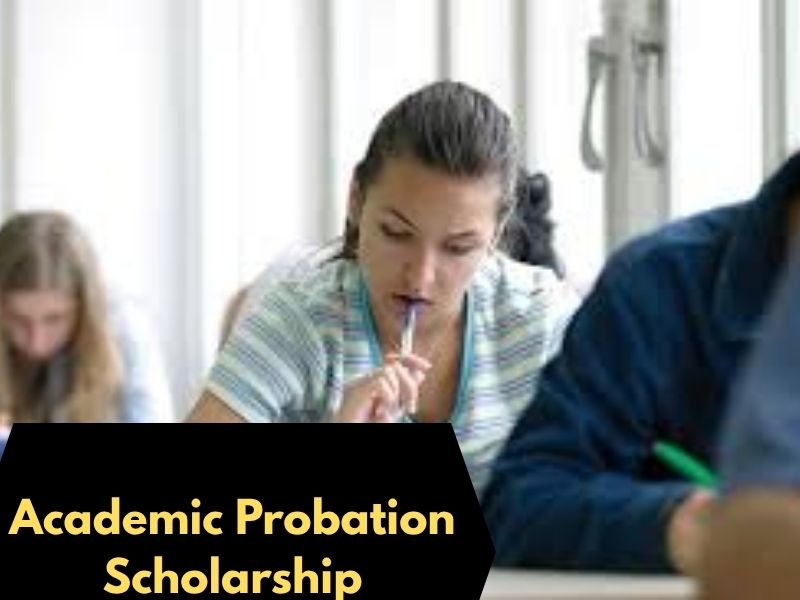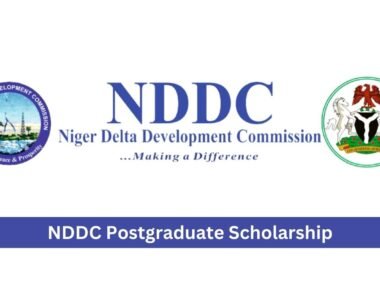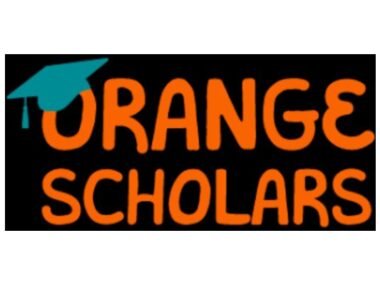Navigating the complexities of higher education can be challenging, especially for students who find themselves on academic probation due to struggles in maintaining satisfactory academic progress. Academic probation is a critical status that signals a student’s grade point average (GPA) or course completion rate has fallen below institutional standards, often risking their enrollment or financial aid eligibility.
However, opportunities like the Academic Probation Scholarship provide a lifeline for students to regain their academic footing while alleviating financial burdens. This 3,000-word article explores the concept of academic probation, the role of scholarships tailored for students in this situation, eligibility criteria, application processes, and strategies to maximize financial aid opportunities.
Understanding Academic Probation
Academic probation is a designation used by colleges and universities to indicate that a student is not meeting the minimum academic standards required to maintain good standing. Typically, this occurs when a student’s cumulative GPA falls below a 2.0 or when they fail to complete a sufficient number of credits. For example, Northwestern University outlines conditions for academic probation, such as earning two or more grades below C in a quarter or having a cumulative GPA below 2.0 for sophomores, juniors, or seniors. Consequences vary by institution but may include restrictions on course registration, loss of extracurricular privileges, or suspension of scholarships and financial aid.
The impact of academic probation extends beyond academics, often affecting a student’s financial aid package. Federal aid, such as Pell Grants, and institutional scholarships may be jeopardized if a student fails to meet Satisfactory Academic Progress (SAP) requirements, which include maintaining a minimum GPA and completing a certain percentage of attempted credits. For instance, at Texas A&M University, a cumulative GPA below 2.0 results in automatic scholarship suspension, with an opportunity to appeal. This is where an Academic Probation Scholarship becomes critical, offering financial support to students working to improve their academic performance.
What is an Academic Probation Scholarship?
An Academic Probation Scholarship is a specialized form of financial aid designed to support students on academic probation. Unlike traditional scholarships based on merit or financial need, these scholarships target students who are at risk of losing their academic standing or financial aid due to subpar performance. The goal is to provide financial relief, allowing students to focus on academic recovery without the added stress of tuition costs. These scholarships may be offered by institutions, nonprofit organizations, or external donors who recognize the potential in students facing temporary setbacks.
While Academic Probation Scholarships are not as widely advertised as merit-based or need-based awards, they exist to bridge the gap for students committed to improving their academic trajectory. They often require students to demonstrate a plan for academic improvement, such as enrolling in tutoring, meeting with academic advisors, or completing a prescribed advising plan. For example, the University of Texas at Dallas requires students on scholarship probation to meet with a SOAR advisor and follow a specific plan to regain eligibility.
Types of Academic Probation Scholarships
1. Institutional Academic Probation Scholarships
Many colleges and universities offer Academic Probation Scholarships as part of their financial aid programs to retain students who show promise despite academic challenges. These scholarships are typically funded by the institution or its donors and may be tied to specific academic recovery programs. For instance:
-
Discretionary Awards: Some universities, like those in the California Community College system, offer scholarships like the Disaster Relief Fund Scholarship, which can support students on probation affected by external circumstances (e.g., wildfires). These awards may prioritize students enrolled in at least six units and demonstrating a commitment to academic improvement.
-
Probation-Specific Grants: Certain institutions provide one-time grants to students on probation who submit a successful appeal. At Texas A&M, students on scholarship suspension can appeal to reinstate aid, though reinstatement is not guaranteed and depends on funding availability.
-
Advising-Based Scholarships: Schools like UT Dallas tie scholarships to mandatory advising programs, ensuring students receive academic support alongside financial aid.
2. External Academic Probation Scholarships
External organizations, such as nonprofits, community foundations, and professional associations, may offer Academic Probation Scholarships to students facing academic difficulties. These scholarships often target underrepresented groups, students with extenuating circumstances (e.g., medical issues, family emergencies), or those in specific fields. Examples include:
-
Community-Based Scholarships: Organizations like the Student Senate for California Community Colleges provide scholarships for students impacted by external factors, which can include those on probation.
-
Need-Based External Awards: Foundations may offer scholarships to students who demonstrate financial need and a commitment to overcoming academic probation through a structured recovery plan.
-
Specialized Scholarships: Some external scholarships focus on students in specific disciplines, such as STEM or vocational programs, who are on probation but show potential for success.
3. State and Federal Aid Adjustments
While not explicitly labeled as Academic Probation Scholarships, state and federal aid programs can sometimes be adjusted to support students on probation. For example:
-
State Grants: In California, students have until April 2, 2025, to apply for state grants via the FAFSA or California Dream Act Application (CADAA), which may support students on probation if they meet other eligibility criteria.
-
Federal Aid Appeals: Students who lose federal aid due to probation can submit a Satisfactory Academic Progress appeal, detailing extenuating circumstances (e.g., illness, family issues) and outlining a plan to improve. Approval may result in the temporary reinstatement of aid, effectively acting as a probation scholarship.
4. Scholarships for Specific Groups
Certain Academic Probation Scholarships target specific populations, such as:
-
Veterans: Scholarships for veterans on probation may be available through organizations like the Veterans of Foreign Wars (VFW) or institutional programs that prioritize military students.
-
First-Generation Students: Nonprofits often support first-generation students on probation, recognizing the unique challenges they face in navigating higher education.
-
Students with Disabilities: Scholarships may be available for students whose academic probation stems from documented disabilities, often requiring coordination with the university’s disability services office.
Eligibility Criteria for Academic Probation Scholarships
Eligibility for an Academic Probation Scholarship varies by institution or organization but typically includes:
-
Academic Probation Status: Students must be officially on academic probation, as defined by their institution (e.g., GPA below 2.0 or insufficient credit completion).
-
Enrollment Status: Most scholarships require enrollment in a degree-seeking program, often at least half-time (6 credits or more).
-
Commitment to Improvement: Applicants may need to submit an academic recovery plan, attend advising sessions, or participate in tutoring programs.
-
Financial Need: Some scholarships prioritize students who demonstrate financial need via the FAFSA or institutional applications.
-
Extenuating Circumstances: Scholarships may require documentation of factors contributing to probation, such as medical issues, family emergencies, or financial hardship.
-
Appeal Process: For institutional scholarships, students may need to submit an appeal explaining their probation status and outlining steps for improvement.
Restrictions may apply. For example, students on conduct probation or honor violation probation (e.g., due to academic dishonesty) may be ineligible for certain scholarships, as these sanctions imply serious offenses. Additionally, scholarships may not be renewable, requiring students to reapply or meet specific criteria for reinstatement.
Application Process for Academic Probation Scholarships
Institutional Scholarships
The application process for institutional Academic Probation Scholarships typically involves:
-
Confirm Probation Status: Verify your academic probation status through your university’s student portal or academic advisor.
-
Complete the FAFSA: For need-based scholarships, submit the FAFSA by the priority deadline (e.g., April 2, 2025, in California).
-
Submit an Appeal: Many institutions require an appeal letter explaining the reasons for probation and your plan for academic improvement. Include supporting documentation, such as medical records or advisor recommendations.
-
Apply Through the University Portal: Use the university’s financial aid portal to apply for probation-specific scholarships. For example, UT Dallas requires students to meet with a SOAR advisor and follow a prescribed plan.
-
Meet Deadlines: Deadlines vary, so check with your financial aid office. Appeals are often reviewed after final grades are posted each semester.
External Scholarships
For external Academic Probation Scholarships:
-
Research Opportunities: Use scholarship search engines like Scholarships360, Fastweb, or the College Board to find awards for students on probation.
-
Prepare Application Materials: Most external scholarships require essays, letters of recommendation, and proof of enrollment. Tailor your essay to highlight your commitment to overcoming academic challenges.
-
Submit to the Organization: Follow the organization’s application guidelines, ensuring all materials are sent by the deadline. Include a letter specifying how funds should be applied (e.g., tuition, books).
-
Notify Your Financial Aid Office: If awarded, ensure the scholarship check is sent to your university’s financial aid office with your student ID and award details.
Tips for a Successful Application
-
Be Honest and Reflective: In your appeal or essay, explain the circumstances leading to probation and your concrete improvement plan (e.g., tutoring, time management strategies).
-
Seek Advisor Support: Work with an academic advisor to develop a recovery plan, which can strengthen your application.
-
Apply Early: Many scholarships have limited funds, so submit applications as soon as possible.
-
Avoid Scams: Legitimate scholarships do not require payment to apply. Verify the credibility of external organizations.
-
Follow Up: Check your university email and financial aid portal regularly for updates on your application status.
Maximizing Financial Aid During Academic Probation
In addition to Academic Probation Scholarships, students can explore other financial aid options to support their recovery:
-
Federal and State Aid: Even on probation, students may retain eligibility for Pell Grants or state grants by submitting a successful SAP appeal. For example, California’s extended FAFSA deadline of April 2, 2025, provides more time to apply.
-
Work-Study Programs: Some universities offer work-study opportunities for students on probation, providing income to offset costs.
-
Private Loans: As a last resort, private loans can cover expenses, though they require careful consideration due to interest rates and repayment terms.
-
Emergency Funds: Many colleges offer emergency grants for students facing unexpected hardships, which can complement probation scholarships.
-
Tutoring and Support Services: Utilize free academic resources, such as tutoring centers or writing labs, to improve grades and maintain scholarship eligibility.
Combining multiple funding sources can help cover the cost of attendance. For example, a student on probation might combine a state grant, an Academic Probation Scholarship, and work-study income to manage expenses.
Challenges and Considerations
Applying for an Academic Probation Scholarship comes with challenges:
-
Limited Availability: These scholarships are less common than merit-based awards, and funding is often limited.
-
Competitive Nature: Meeting eligibility criteria does not guarantee an award, as funds are allocated based on availability and applicant pool strength.
-
Non-Renewable Awards: Many probation scholarships are one-time awards, requiring students to improve their GPA to maintain other aid.
-
Appeal Denials: SAP or scholarship appeals may be denied if the student’s plan for improvement is deemed insufficient.
-
Impact on Future Opportunities: While academic probation does not appear on transcripts, it may affect eligibility for competitive programs or future scholarships.
Recent Trends and Updates (2020–2025)
Recent trends highlight the growing recognition of the need for Academic Probation Scholarships. In 2023, institutions like Texas A&M emphasized the importance of SAP appeals, allowing students to regain aid eligibility by demonstrating extenuating circumstances. California’s extension of the FAFSA deadline to April 2, 2025, reflects efforts to make financial aid more accessible to students facing challenges, including those on probation. Additionally, organizations like Scholarships360 have increased awareness of probation’s impact on financial aid, advocating for resources to support struggling students.
The rise of online scholarship search platforms and AI tools, such as LogicBall’s Research Paper Keywords Generator, also indicates a broader trend toward improving access to academic resources. While these tools focus on research visibility, they underscore the importance of discoverability, which can extend to finding niche scholarships like those for probation students.
Strategies for Academic Recovery
Securing an Academic Probation Scholarship is only one part of the equation. Students must also focus on academic recovery to maintain eligibility and avoid dismissal:
-
Develop a Study Plan: Create a structured schedule prioritizing study time, class attendance, and assignment deadlines.
-
Utilize Campus Resources: Engage with tutoring centers, academic advisors, and counseling services to address academic and personal challenges.
-
Meet with Professors: Discuss your performance with instructors to identify areas for improvement and seek extra credit opportunities.
-
Monitor Progress: Regularly check your grades and GPA to ensure you’re on track to exit probation.
-
Address External Factors: If personal or financial issues contributed to probation, seek support through campus resources or external organizations.
Conclusion
An Academic Probation Scholarship can be a game-changer for students facing academic challenges, providing financial support to focus on recovery and success. By understanding the types of scholarships available, meeting eligibility criteria, and navigating the application process, students can secure funding to continue their education. Combining these scholarships with other aid options, such as federal grants, state programs, or emergency funds, can further alleviate financial stress. Institutions like Texas A&M, UT Dallas, and California Community Colleges demonstrate a commitment to supporting students on probation through tailored programs and appeal processes.
For students on academic probation, the journey to recovery requires resilience, strategic planning, and access to resources. By leveraging Academic Probation Scholarships and campus support systems, students can overcome setbacks and achieve their academic and career goals. For more information, visit your university’s financial aid website, consult with an academic advisor, or explore scholarship databases like Scholarships360 to find opportunities tailored to your needs. With determination and the right support, academic probation can be a temporary hurdle rather than a permanent barrier.







